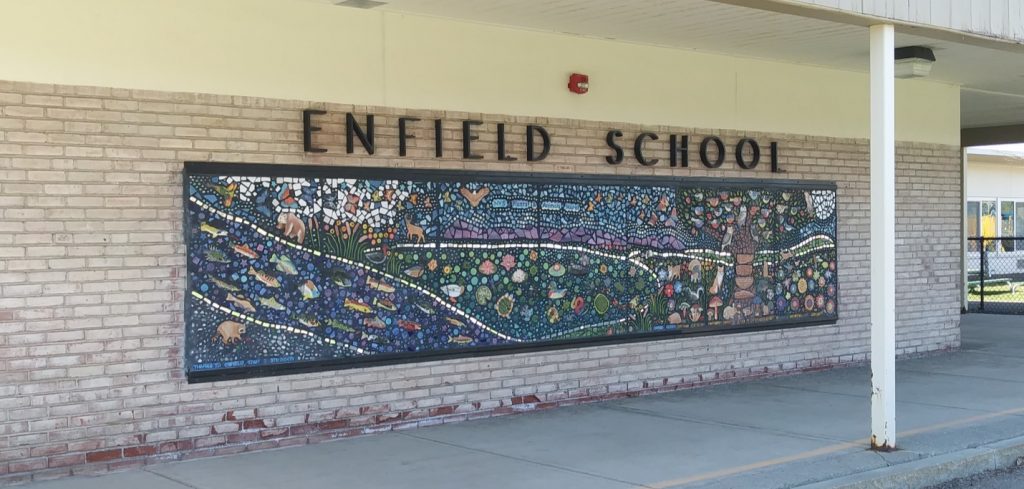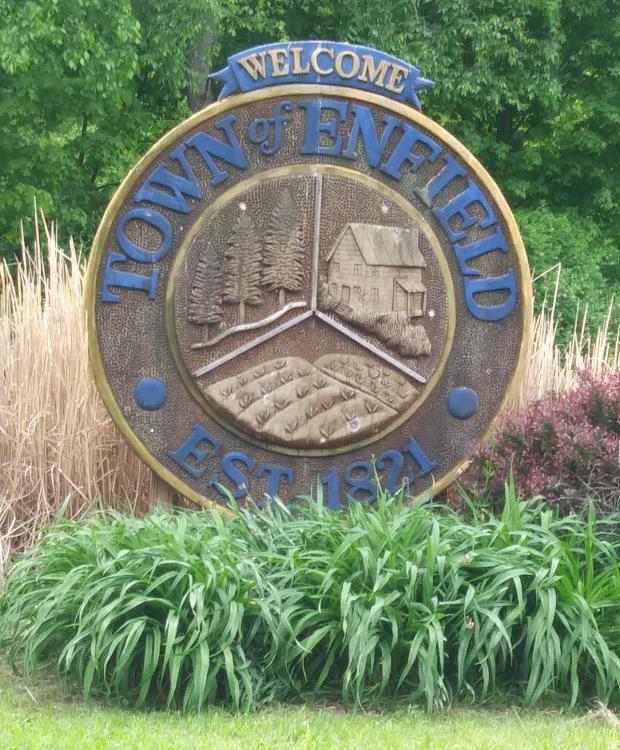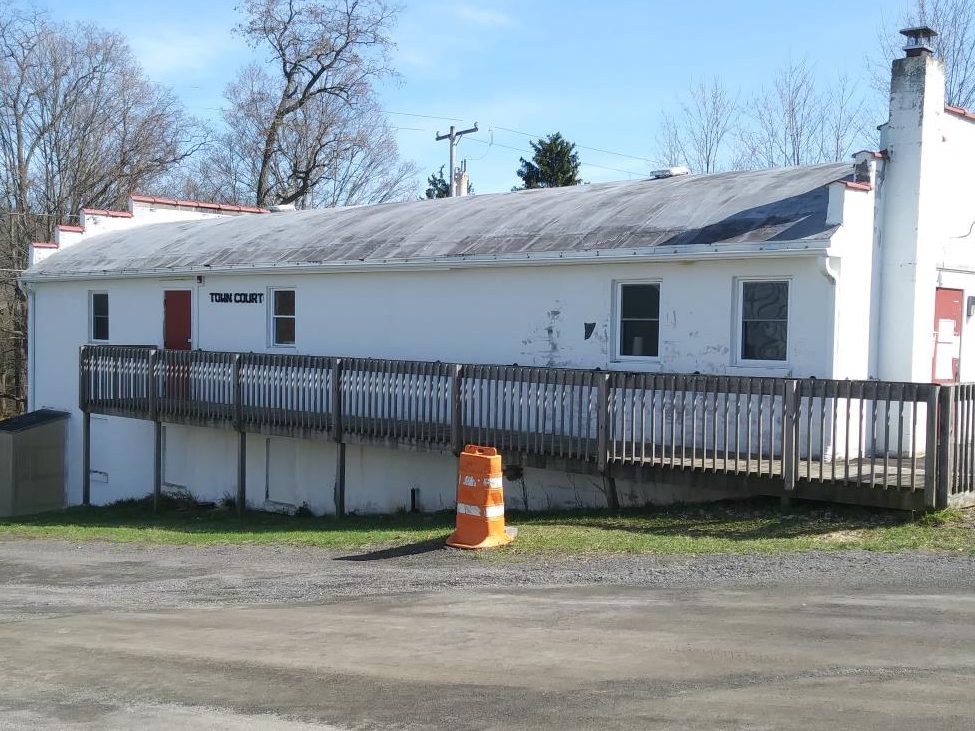Bob’s former Home Page Essay; September 23 – October 7, 2019
September 23, 2019
“I was raised by a mother who said many things that were life lessons for me, including ‘Don’t you ever let anybody tell you who you are. You tell them who you are.’”
Sen. Kamala Harris; Democratic Presidential Candidates’ Debate; September 12, 2019
Saturday, September 21st, while I was spooning coleslaw and packing chicken dinners for many of you at the Enfield Harvest Festival, our Town Supervisor, Beth McGee, blast-emailed to many of us an 800-word critique not only of me, but also of the political party to which we both belong. When anger overwhelms civility and reasoned judgment, facts get distorted, quotations twisted, and political ignorance rewrites the truth. At least away from the elementary school grounds that sunny afternoon, it was not Enfield’s finest hour.

Taking wise counsel from Senator Harris’ late mom, I will not repeat the allegations leveled at me by our Supervisor. You can read them elsewhere. Instead, I choose to define myself, documenting my words and my actions, my principles and my passions. I’ll do so with honesty, candor, and consistency. It’s how I’ve represented myself in more than 500 door-to-door visits with you, my people, in my quest this year for Enfield Councilperson.
Our Town Democratic Chair has fully and accurately documented my own non-involvement in the process whereby the Executive Committee of Tompkins County’s Democratic Party recommended allocation of County Party funds to my campaign and that of another. To the Supervisor’s allegations on that point, I need say no more, other than that I have and will abstain from any and all discussion or voting concerning my campaign’s financial support.
Supervisor McGee has made much of my evolving position on fracking. Like, I believe, a majority of you, I oppose fracking in all its forms. Our ground water is too precious. It’s the only water we have to drink. We must protect it. But to fight fracking successfully, we must use our heads and not just our gut emotions. Should we carelessly choose a reckless, go-it-alone course, we may lose our battle—and go broke in the process.

I affectionately called it the “loaf-of-bread” hearing. Remember it? Perhaps it was the Town Board’s Public Comment Meeting of November 2011 at the school, the one concerning an Enfield fracking ban. I attended and spoke up, as did scores of my neighbors, including one who recognized the benefit of a visual prop. He held up a freshly-baked loaf of bread which he’d baked locally for sale Downstate. He (probably rightly) asserted that fracking water would destroy his bread and his business.
Yes, I swam against the current. I’d argued that Enfield should not ban fracking unilaterally. I stand by what I said then, even though I would not say it today. Back then, nearly a decade ago, locally-imposed fracking bans were legally untested. The State—and its courts—had yet to step to the plate. I’d worried about financial consequences. Face it, Enfield is a poor town with a limited tax base. I’d warned that our otherwise-frugal community might find itself buried under a mountain of legal bills… and still lose. Would you want to defend yourself against Exxon-Mobil? I wouldn’t. Even for me, courage only goes so far.
[If anyone has a transcript or a video of my testimony that night, I’d welcome you to share it. There’s no October Surprise here.]I recall I’d urged the Town to go slow; to let the State step in first. Albany has the wealth and the legal stable that we in Enfield lack. Admittedly, I was outnumbered that night. Such is Democracy. But I stand by what I said given the circumstances and the times.
Today, however, I look forward, not back over my shoulder. I believe Enfield’s 2013 fracking ban is Settled Law. I affirmed my current position last June in our Candidates’ Forum at the Grange. To my knowledge, unlike many federal statutes, the Enfield law will not sunset. We need not—we should not—revisit, revise, or repeal our ban on fracking! It’s a non-issue in this campaign. Let the law stand. Now let’s move forward.
But there lies the problem. Many of the same forces who fought so hard against fracking have turned their attention to oppose the very forms of energy-generation alternatives that would replace the fracked gas we will leave in the ground. When I spot NIMBY-spawned environmental hypocrisy, I expose it. And when I observe it gaining supermajority support within our Town’s government, I sense Democracy’s fragility.
America’s Founders feared the Tyranny of the Majority. James Madison warned that a minority faction, fueled by inflamed passions or deception, could, if left unchecked, propel itself to majority power, if only temporarily. Then, Madison wrote, the majority could oppress all who disagreed. That’s why the Founders framed the federal system to employ what some scholars call vetogates—you may call them checks and balances—to prevent bad impulses from becoming law. Proceduralist vetogates include Bicameralism (having both a House and a Senate) and Presentment (subjecting adopted bills to Presidential signature or veto; with legislative override an option thereafter).
Sadly, New York Law offers no comparable vetogates at the Town Board level. Three votes out of five on our Board seals the deal for most local laws; no upper house; no veto by the Supervisor; no override. The result: Enfield’s five elected legislators hold immense power, potentially unchecked power, to rule over our lives. Power’s abuse tempts those who lead.

For that reason if for no other, Town Board composition should be diverse. All citizens, not just the activist few, deserve a voice… and a vote. Yes, anti-wind, solar-skeptical partisans have earned their place in Enfield’s debates. But so have the non-activists among us, as well as those whose activism promotes a distinctly contrasting agenda. In the Enfield of 2019, this colorful, beneficial mosaic of varied opinion does not populate our current Town Board. It should. I hope one day it will.
Someone has poisoned the well of Enfield politics, if I may continue my fracking analogy. I did not toss in the toxin. You must decide who did. But I have a strong constitution. I can ward off this poisonous partisanship, if only as a minority of one. Why? Because—and only because—I have you, my people, as my antidote. I humbly value your support: your votes, your affirmation, and whatever outreach you can provide to carry my message to those I may never happen to visit.
Enfield is strong. Enfield is resilient. Enfield is diverse with a diversity in viewpoint as well as in all else. Each of our citizens deserves representation, whether or not he or she adopts the preferred activist line. And each of us—not just the chosen, elite few—deserves a seat at our Town’s governing table. We are, indeed, One Enfield. And that inclusion stands as the overarching principle I promise to advance. Join me at the table.
Bob Lynch
Postscript
September 24, 2019
Since my prior day’s posting of this commentary, Supervisor Beth McGee has chosen to share from her own campaign archives and place into the public domain her consolidated video clips of my testimony at not one, but two Enfield Public Hearings on fracking, both held nearly a decade ago. I spoke at both the Public Comment Meeting of November 30, 2011; and also at what the Supervisor describes as a “Hearing on Fracking Moratorium/Ban in Enfield,” held March 28, 2012. I thank the Supervisor for sharing them.
https://www.youtube.com/watch?v=zNCniBS8NaM&feature=youtu.be
I urge you to view these clips. They warrant from me no apology, despite others’ attempts to politicize my opinions. My words demonstrate a cautious, thoughtful concern for the financial welfare of our town, and my desire (then, as now) to bring all parties together to solve our common problems collectively, and without rancor or animus. We are One Enfield.
My testimony was appropriate for the time and the circumstances. But that was then; this is now. Eight years is an eternity in environmental politics. Laws change. So do people.
Bob

